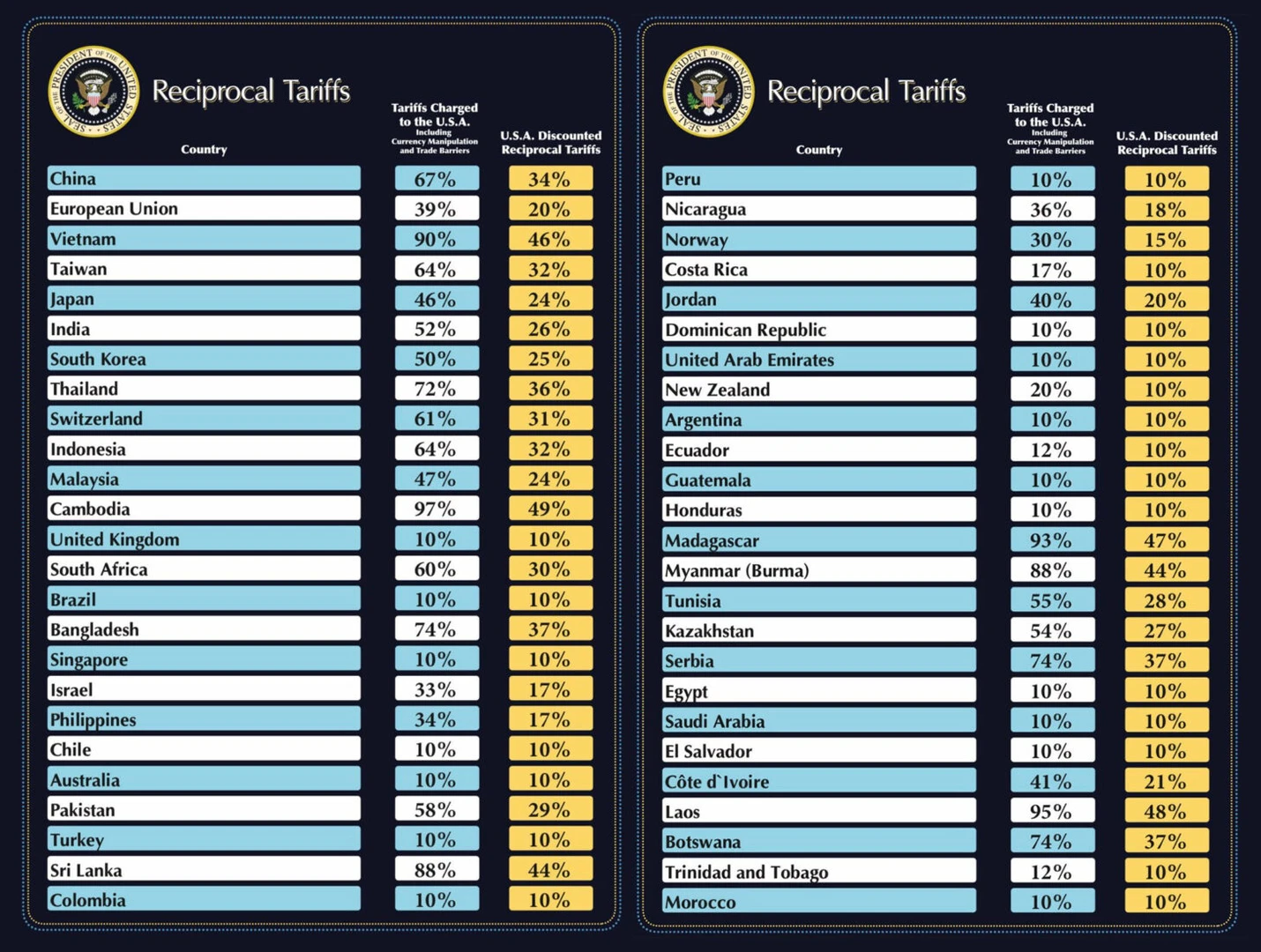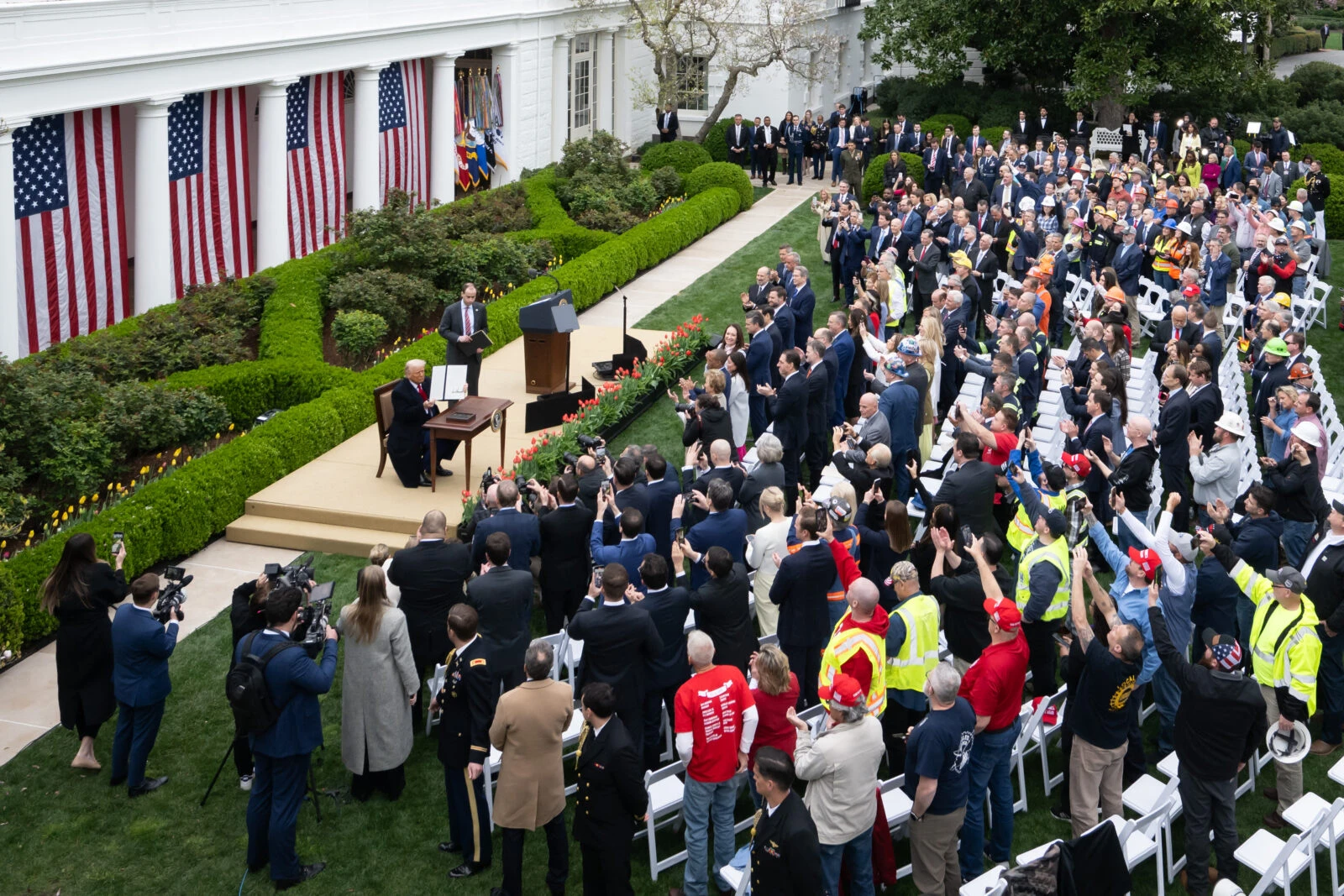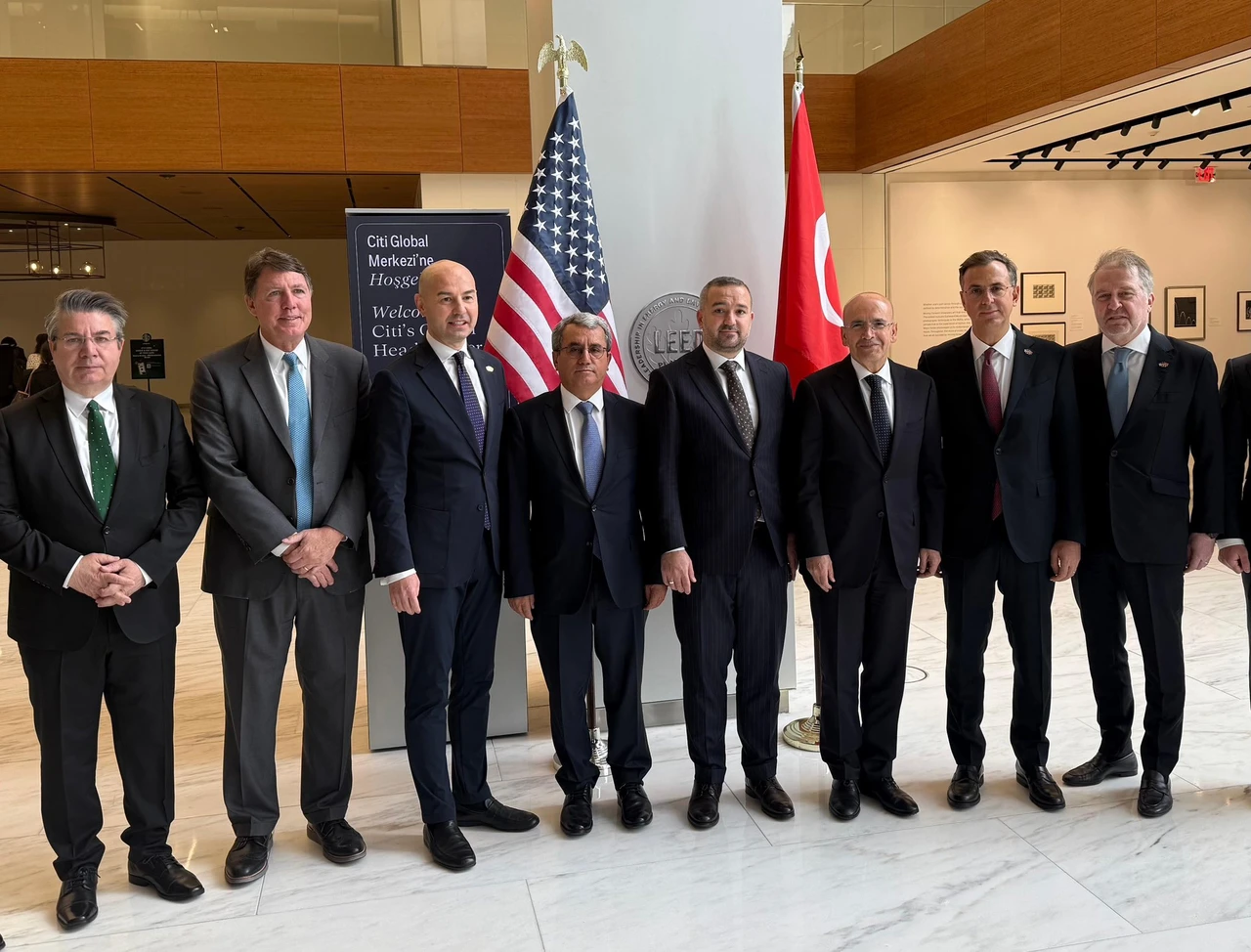Trump unveils ‘Liberation Day’ tariffs, igniting fears of global trade war
 U.S. President Donald Trump holds a chart as he delivers remarks on reciprocal tariffs during an event in the Rose Garden entitled "Make America Wealthy Again" at the White House in Washington, U.S., on April 2, 2025. (AFP Photo)
U.S. President Donald Trump holds a chart as he delivers remarks on reciprocal tariffs during an event in the Rose Garden entitled "Make America Wealthy Again" at the White House in Washington, U.S., on April 2, 2025. (AFP Photo)
U.S. President Donald Trump on Wednesday announced sweeping “Liberation Day” tariffs, a move that threatens to ignite a global trade war. Speaking from the White House Rose Garden, Trump claimed the U.S. had been “looted, pillaged, raped, and plundered by nations near and far, both friend and foe alike.”
The 78-year-old Republican, who has long criticized trade imbalances, did not provide full details of the tariffs but confirmed he was signing an order to impose “reciprocal tariffs on countries throughout the world” based on how they treat the United States.
Trump’s previously announced 25% auto tariffs are set to take effect Thursday at 12:01 a.m. (0401 GMT).
“This is Liberation Day,” Trump declared, calling it “the day American industry was reborn” and “America’s destiny was reclaimed.” The announcement was met with cheers from an audience that included cabinet members and workers from industries such as steel, oil, and gas. Trump touted the tariffs as a means to “make America wealthy again.”
Although Trump has pushed for tariffs for weeks, many experts have raised concerns that the move could spark a recession at home as costs are passed on to U.S. consumers and escalate tensions abroad.

Trade war fears and global reactions
Ahead of the announcement, global markets were on edge as investors braced for the potential fallout. The tariffs are also expected to deepen concerns that Trump is distancing the U.S. from traditional allies in favor of a more isolationist, America-first approach.
Despite speculation, the scale of the tariffs remained unclear until the final moments. The auto tariffs, announced last week, are among the first to be implemented.
The European Union, a key U.S. trading partner, vowed swift retaliation, with French officials confirming that countermeasures against U.S. tariffs on steel and aluminum would be introduced by the end of April. British Prime Minister Keir Starmer also expressed concern, stressing that a trade war would be detrimental for all involved.

Recession concerns and economic impact
Trump has long championed tariffs as a solution to America’s trade imbalances, hoping they will spur a renaissance in U.S. manufacturing. However, critics warn the move could hurt U.S. businesses and consumers if the cost of imports is passed on to them.
“If this trade war continues through Labor Day, the U.S. economy will likely suffer a recession this year,” said Mark Zandi, chief economist at Moody’s Analytics.
European Central Bank President Christine Lagarde echoed these concerns, noting that the global economy would suffer from any escalation in trade tensions.
Despite his aggressive stance, Trump has previously agreed to pause tariffs on neighboring countries like Canada and Mexico while negotiations continued. His earlier tariffs on these nations were linked to their failure to curb the flow of fentanyl into the U.S.
As U.S. truck driver Alejandro Espinoza noted, “We’re the ones who pay in the end.”



